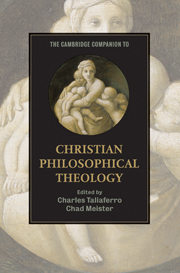14 - Revelation and miracles
from Part II - God in relation to creation
Published online by Cambridge University Press: 28 May 2010
Summary
Answers to four connected questions about revelations and miracles carry the gravest implications for both Christian and non-Christian revelatory claims. Stripped of nuances to be added later, the questions are: (1) Can belief in a revelatory claim be appropriate if no adequate case backs the content of the belief? (2) Can a case for a revelatory claim succeed without first establishing the existence of God? (3) Can a case for a revelatory claim succeed if it does not include appeal to a confirming miracle? (4) Are Christian revelatory claims vulnerable to Humean-type arguments against the credibility of miracles? We, of course, cannot fully engage the questions in this brief chapter. We can, however, at least clarify the questions and the interconnections among them. We can also gain a sense of the value of and need for exploring more fully the content of Christian revelation from a philosophical standpoint. However, before we take up these four questions directly, we must discuss some terms. We aim here not only to provide some context for our later discussion, but also to draw off some of the vapors clinging to the issues.
- Type
- Chapter
- Information
- The Cambridge Companion to Christian Philosophical Theology , pp. 201 - 215Publisher: Cambridge University PressPrint publication year: 2009

